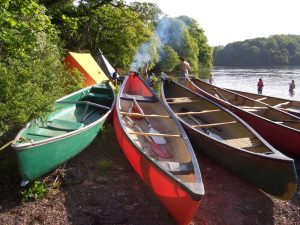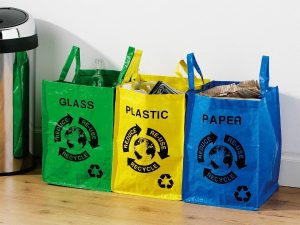The Marine Conservation Society is urging people to get through June without plastic. The Plastic Challenge will highlight our reliance on this substance of convenience.
With more plastic (by weight) than fish in our seas a possibility by 2050 according to some predictions (1), our reliance on plastic in all its forms is clear.
To highlight just what a plastic pickle we’re in, the Marine Conservation Society (MCS) is once again throwing down the gauntlet to the public to take on the Plastic Challenge throughout June.
MCS, the UK’s leading marine charity, is asking people to give up single-use plastics for a whole month. The challenge is to say goodbye to conveniences like pre-packed sandwiches, ready meals and plastic-bottled drinks for a day, a week or, if they can manage it, the whole of June.
Simon Reeve, TV presenter and ambassador for the challenge, says “Our planet is becoming poisoned by plastic. The vast amount in our oceans has become an environmental emergency as a direct result of our throwaway society. That’s why I’m supporting thousands of people living without single use plastic this June as part of the Marine Conservation Society’s Plastic Challenge. Don’t just get depressed about plastic – stop using it!”
Last year almost 1,000 people took part in the MCS Plastic Challenge, and over 95% said they would continue reducing their plastic use after the challenge was over. The charity hopes even more people will take part in 2017.
“This is a challenge that you can make as easy or as hard for yourself as you like,” says Dr. Sue Kinsey, MCS Technical Specialist. “But however you choose to do it, you can’t fail to realise just how reliant on plastic we’ve become. Some things are really tough to replace, however much you want to give up single-use plastic”.
Among the hardest things people found to replace were milk containers, dried goods packaged in single use plastic like pasta, rice and pulses, loo paper and toothpaste.
MCS says that many people who take on the challenge really do get stuck in.
“They know why it’s so important to cut down on our plastic use,” says Dr Kinsey. “If these dedicated ditchers found it hard to find non single use plastic alternatives then that just goes to show how plastic dominates our lives even if you actively don’t want it to.”
One person told MCS they only lasted two hours before they realised there were single use plastic bags inside their cardboard cereal packet!
Despite that, in 2016, of 61 Challengers who were surveyed – 3% managed a day, 27% saw out a full week, whilst 34% stuck it out for a month.
However some things were really easy to replace – they just required a bit of thought: hand wash dispensers and shower gel can be replaced with a bar of soap (many aren’t plastic wrapped), you can make your own lunches rather than buy plastic packed sandwiches and use tap water in reusable bottles. Last year, Challengers also made their own bread, yogurt, cleaning and bathroom products like mouthwash and sugar scrubs so as not to use plastic containers that are used once, then thrown out.
MCS says the amount of plastic litter on our beaches has increased by 180% in the last 20 years and has become a massive threat to marine wildlife. Plastic bags, bottles and tiny plastic pieces are regularly found in the stomachs of turtles and other sea creatures, and in some cases have caused their death from starvation or choking.
“Reducing plastic litter will certainly be an uphill climb – but there are some easy steps to take and if we can all cut down the amount we use, there’s no doubt our marine environment will be a healthier place” says Dr. Kinsey.
“People taking on the Plastic Challenge are often shocked to find out just how much single-use plastic is used every day. Have a go at the Plastic Challenge, even if you can only manage a single day, and you’ll never look at your shopping in the same way again!”
Register to take part in the Plastic Challenge at www.mcsuk.org/plasticchallenge MCS offers help and advice through an online community in the run up to the challenge and all through the month of June.
1. According to the Ellen Macarthur Foundation and the World Economic Forum, “Given projected growth in production, in a business-as-usual scenario, by 2050 oceans could contain more plastics than fish (by weight)”. Report: The New Plastics Economy Catalysing Action 2016 https://www.ellenmacarthurfoundation.org/ assets/downloads/New-Plastics- Economy_Catalysing-Action_13- 1-17.pdf














